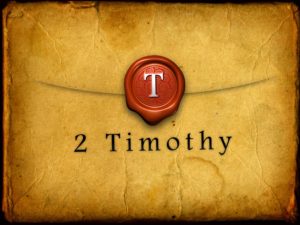Psalm 107 has been one of my favourite Psalms for years. This little essay is only a preliminary study, and for those who are Old Testament exegetes, this is not a full consideration of the text (hence the “part 1” in the title). I will add a full outline later.
At the opening verse, we receive a command to give thanks for the Lord’s goodness, His Hesed (חֶסֶד), translated “steadfast love” (other translations may have it as “loving-kindness)” This term is found 249 times in the Old Testament, more than half of them in Psalms. It speaks of God’s faithfulness, goodness, love and commitment to His people. It is most often translated with two English words, “loving-kindness” or “steadfast love.”
Second, Psalm 107:2 & 107:3 tell us that He has redeemed His people from their enemies, and has regathered them, referring to the people returning from Babylonian captivity.
Third, there are four perils and resolutions, each containing a specific woe, a cry for help, God’s salvation from that peril, and a call to give thanks, and a description of His blessing:
-
Exiles: Psalm 107:4-9
- Peril: this seems to refer to people who have been exiled and are without a place to live (4, 5); because the Babylonian exile was a judgement and punishment by God for unfaithfulness, it is implied that the exiles are to blame for their plight.
- They cried (צעק) to the Lord (6a)
- He delivers (נצל) them (6b). In doing this, He leads His people (7)
- Let them give thanks for His loving-kindness (8)
- A description of His blessing (9). He saves His people in the manner needed for their situation: He satisfies the longing for a place (home) to live.
-
Imprisoned: Psalm 107:10-16
- Peril: in prison and in chains, near death, hard labour. The reason is stated that they were rebellious (10-12). It is clearly implied that God sent them to prison for their rebellion.
- They cry to the Lord. The term here is זעק, z’q, with similar meaning as צעק, ts’q. The two terms can sound very similar and are used this way for poetic emphasis as we will see below.
- God delivers them ישׁע, ysh’. This is a common word for “save,” and is the root for the name “Joshua” and, in Aramaic, “Jesus.” In saving His people, He brings His people out of the darkness and breaks bonds. Verse 14 uses the same word, יצא, “to bring out” as found in verse 28 below.
- Verse 15 is identical to verse 8: “Let them thank the LORD for his steadfast love, for his wondrous works to the children of man!”
- A description of His blessing (16). He saves His people in the manner needed for their situation. He shatters doors of bronze and breaks bars of iron.
-
Illness due to sin: Psalm 107:17-22
- Peril: because of sin, they were physically sick. They either could not or would not eat in this condition, and they were near death. The Bible does not affirm that sickness is always caused by a specific sin, but this particular case indicates that the illness mentioned is due to sin.
- They cried (זעק) to the Lord (19a)
- He delivers them (ישׁע), ysha; He heals (רפא), raphe, them and delivers (מלט), malat, them. Note that this point the blessing is described, not at the end of the situation. This is a variation from the first two situations. In verses 19b-20 “he delivers” He heals” “He delivers”. The first term for deliverance is ysh’ again, then healing, then delivering them to a place of safety. They were near death due to illness brought on by sin, and God healed them. “Healing” is רפא, rph, to repair, rebuild, heal, cure.
- Verse 21 is identical to verses 8 & 15.
- Rather than a description of His blessing (deliverance and healing), there is a further exhortation to offer sacrifices of thanksgiving and songs of joy (22)
-
Peril at sea when doing business: Psalm 107:23-32.
This is the longest of the four situations, and it is not a peril where a fault is found in the people who cry out to the Lord. These are merely men who are sailing ships and there is no implied fault or error.
-
- The sea is dangerous. It is clear that the situation was brought on by God Himself (25). “God commanded . . .” means that the “natural” events were in His control, whether for good or for ill (Matthew 8:23-27). The account of Jesus stilling the storm is followed by His healing two men who are demon-possessed (Matthew 8:28-34), and shows the reader that Christ, being God, is sovereign over both nature and the spirit world. Both the sea and the spirit world were places of chaos in common thinking at the time, and Christ is in control of both, in the same manner, God was in the Old Testament. This is the most surprising of the four situations, because there is no blame to be placed upon the characters, yet these sailors too, must cry out to the Lord.
- They cried (צעק), ts’q to the Lord. Note this pattern (all four are translated “cried”):
A vs 6a: צעק
B vs 13: זעק
B’ vs 19: זעק
A’ vs 28: צעקThe use of the same word at the first and last unit would seem to indicate that these four units (situations) are to be understood as a whole, or a set. These four words would sound very similar to each other: vs 6a & 28 sounds like “tsach” and vs 13 & 19, “zach.”
-
- God delivers (יצא) yts’ them. This term for deliverance has the idea of “bringing out” of danger or captivity. This is the way this term is used repeatedly in Exodus, and other passages of “bringing out.” It is important to note this because in many places the term can also mean simply “to flow out” or “go out.” In this case, being “brought out” is out of the helplessness of the sea. He calms the storm, they are glad, and He brings them to port safely.
- verse 31 is identical to verses 8, 15 and 21.
- verse 32 is an expansion of the exhortation to give thanks and proclaim God’s deliverance to those who were not there to witness it. If those returning from the sea had not proclaimed God’s deliverance, the congregation and the elders would have known nothing of the peril at sea nor the deliverance.
Summary, interpretation and application.
- God calls us in all perils to cry out to Him for aid and to give thanks to Him.
- It is implied in two of the scenarios (1 & 3) and explicit in two (2 & 4) that the dangers, pain, suffering, longing, hopelessness, fear and despair are all brought by God against His people. In the fourth, however, it does not seem to be a judgement, but the end goal is the same: “Let them thank the LORD for his steadfast love, for his wondrous works to the children of man!” Psalm 107:8, 15, 21, 31.
- This should make us consider our thankfulness to God. All these calamities were sent that the people of God would cry out to Him, and that He would deliver them, and that they would be thankful.
- We should understand our circumstances as God’s means to bring us to thanksgiving.
- This should also bring us to an appreciation of the fact that nothing is outside of His control. There is no situation we may come to be in that we are not to cry out to Him. There is no cause of a situation (sin, rebellion, business) that closes God’s ears to His people.
- When we are in a situation of longing, wandering, prison (hemmed-in with no way out), burdened in labour, sick (especially due to our sinful behaviours); when we are going about our business and dangers arise—in all these we are to “cry out to the Lord,” then give thanks to Him.
- The use of five different terms for “deliver” is important. In order, they are natsal (6b), ysha (13), rpha (20), ytsa (28). Notice the wide breadth of meanings here: He pulls His people out; He moves His people out of prison; He heals His people; He brings them out of peril and bondage.
- God calls us in all perils to cry out to Him for aid and to give thanks to Him.
- It is implied in two of the scenarios (1 & 3) and explicit in two (2 & 4) that the dangers, pain, suffering, longing, hopelessness, fear and despair are all brought by God against His people. In the fourth, however, it does not seem to be a judgement, but the end goal is the same: “Let them thank the LORD for his steadfast love, for his wondrous works to the children of man!” Psalm 107:8, 15, 21, 31.
Full text:
107 Oh give thanks to the Lord, for he is good, ,
for his steadfast love endures forever!
2 Let the redeemed of the Lord say so,
whom he has redeemed from trouble
3 and gathered in from the lands,
from the east and from the west,
from the north and from the south.
4 Some wandered in desert wastes,
finding no way to a city to dwell in;
5 hungry and thirsty,
their soul fainted within them.
6 Then they cried to the Lord in their trouble,
and he delivered them from their distress.
7 He led them by a straight way
till they reached a city to dwell in.
8 Let them thank the Lord for his steadfast love,
for his wondrous works to the children of man!
9 For he satisfies the longing soul,
and the hungry soul he fills with good things.
10 Some sat in darkness and in the shadow of death,
prisoners in affliction and in irons,
11 for they had rebelled against the words of God,
and spurned the counsel of the Most High.
12 So he bowed their hearts down with hard labor;
they fell down, with none to help.
13 Then they cried to the Lord in their trouble,
and he delivered them from their distress.
14 He brought them out of darkness and the shadow of death,
and burst their bonds apart.
15 Let them thank the Lord for his steadfast love,
for his wondrous works to the children of man!
16 For he shatters the doors of bronze
and cuts in two the bars of iron.
17 Some were fools through their sinful ways,
and because of their iniquities suffered affliction;
18 they loathed any kind of food,
and they drew near to the gates of death.
19 Then they cried to the Lord in their trouble,
and he delivered them from their distress.
20 He sent out his word and healed them,
and delivered them from their destruction.
21 Let them thank the Lord for his steadfast love,
for his wondrous works to the children of man!
22 And let them offer sacrifices of thanksgiving,
and tell of his deeds in songs of joy!
23 Some went down to the sea in ships,
doing business on the great waters;
24 they saw the deeds of the Lord,
his wondrous works in the deep.
25 For he commanded and raised the stormy wind,
which lifted up the waves of the sea.
26 They mounted up to heaven; they went down to the depths;
their courage melted away in their evil plight;
27 they reeled and staggered like drunken men
and were at their wits’ end.
28 Then they cried to the Lord in their trouble,
and he delivered them from their distress.
29 He made the storm be still,
and the waves of the sea were hushed.
30 Then they were glad that the waters were quiet,
and he brought them to their desired haven.
31 Let them thank the Lord for his steadfast love,
for his wondrous works to the children of man!
32 Let them extol him in the congregation of the people,
and praise him in the assembly of the elders.
33 He turns rivers into a desert,
springs of water into thirsty ground,
34 a fruitful land into a salty waste,
because of the evil of its inhabitants.
35 He turns a desert into pools of water,
a parched land into springs of water.
36 And there he lets the hungry dwell,
and they establish a city to live in;
37 they sow fields and plant vineyards
and get a fruitful yield.
38 By his blessing they multiply greatly,
and he does not let their livestock diminish.
39 When they are diminished and brought low
through oppression, evil, and sorrow,
40 he pours contempt on princes
and makes them wander in trackless wastes;
41 but he raises up the needy out of affliction
and makes their families like flocks.
42 The upright see it and are glad,
and all wickedness shuts its mouth.
43 Whoever is wise, let him attend to these things;
let them consider the steadfast love of the Lord.



 Passage outline
Passage outline